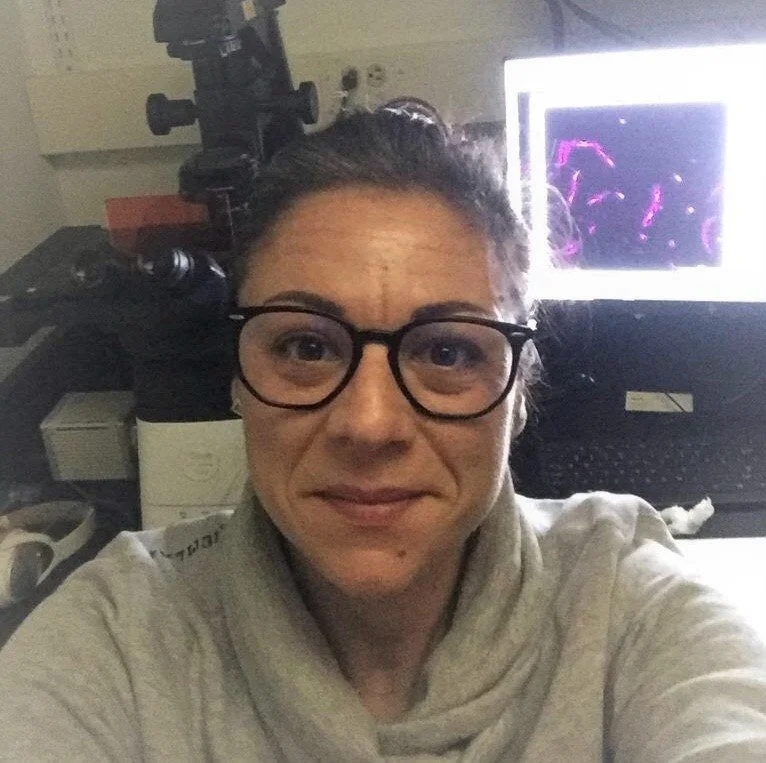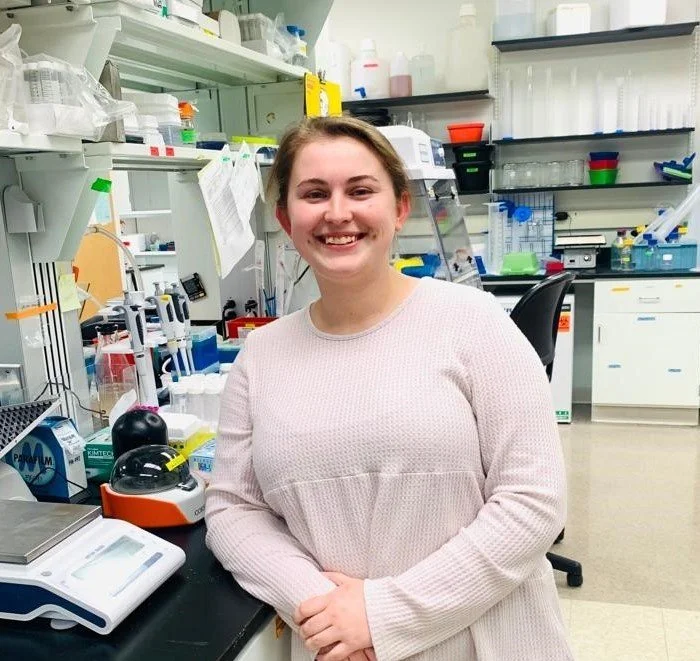Our Team
Interim Director, Alzheimer's Center at Temple (ACT)
Associate Professor, Department of Neural Sciences
Associate Professor, Lemole Center for Integrated Lymphatics Research, Department of Cardiovascular Sciences
Dr Fossati is an associate professor of pharmacology and the associate director of the Alzheimer’s Center at Temple University Lewis Katz School of Medicine. She was previously an Assistant Professor of Neurology and Psychiatry at NYU School of Medicine. She obtained a PhD in Neuropharmacology from the University of Florence, Italy, and a Postdoctoral Fellowship in Pathology (on AD/ADRD and cerebrovascular cell death) at NYU School of Medicine.
From early in her career, she has been strongly committed to understanding the molecular pathogenesis of neurodegenerative disorders. Her current research interests focus on clarifying the mechanisms of cell death/stress underlying the causes of neurodegeneration in Alzheimer’s disease (AD), Cerebral Amyloid Angiopathy (CAA), and the Vascular Contributions to Cognitive Impairment and Dementia (VCID), with particular emphasis on mitochondrial dysfunction, deregulation of apoptotic factors, stress/death of cells that compose the neurovascular unit, and blood-brain barrier dysfunction.
Her goals are twofold: i) to unveil new drug targets that can protect brain neuronal and vascular cells against neurodegenerative and neurovascular pathology, and ii) to discover new biomarkers for these diseases, with strong implications for human health. She has dedicated her career to understanding the neurovascular link between cardiovascular risk factors and AD/CAA.
She has obtained many awards as a Principal Investigator, including NIH-R01s, American Heart Association, and Alzheimer’s Association awards. Along with her basic and translational studies in AD and related dementias, she is committed to advance the discovery and validation of biofluid biomarkers for AD, VCID, TBI, and PTSD, using novel and highly sensitive technologies such as the Quanterix Simoa. As such, she participated as a key investigator and Biomarker Core Director and managed sample biorepositories in multiple clinical studies focusing on biomarkers.
Associate Scientist
Elisa is working on elucidating the detrimental mechanisms underlying cerebrovascular dysfunction and neuroinflammation in Alzheimer’s Disease. In her postdoctoral appointment, she studied caspase-induced vascular alterations in edema formation, following ischemic stroke. Her specific knowledge and technical skills make her a specialist in cerebrovascular systems and blood-brain barrier that are severely affected in Alzheimer’s Disease pathology.
Post-Doctoral Research Fellow
Rebecca is working on cerebral endothelial cell mitochondrial dysfunction during Cerebral Amyloid Angiopathy and Alzheimer’s Disease. She obtained her B.S. in Genetic Biology with a minor in Psychology. Her PhD was in Physiology focusing on the role of the mitochondria, particularly the mitochondrial deacetylase SIRT3, in myocardial infarction.
Associate Scientist
Tetyana's focus is to dissect the mechanisms underlying overlapping BBB pathologies in Alzheimer’s with cerebrovascular disease comorbidity. As background, she studied BBB dysfunction caused by HIV-1 and substance use disorder. Her scientific interests include developing isogenic microfluidic organ-on-chip system to recapitulate the loss of BBB structure and function in Alzheimer's disease with high fidelity.
Post-Doctoral Research Fellow
Andrea is working on the impact of cardiovascular risk factors and CAIs on the brain-heart axis in Alzheimer's disease. He has a background in pharmacy and clinical and experimental medicine. His scientific interest is focused on the cardiac autonomic nervous system in a post-ischemic in-vivo and the impact of physiological aging on the cardiac neuro signaling pathway, to identify novel therapeutic tools for the treatment of cardiovascular diseases.
PhD Student
Ashley’s work focuses on understanding the contribution of cardiovascular risk factors to amyloid-beta-induced endothelial cell dysfunction within Alzheimer's Disease and Cerebral Amyloid Angiopathy. Her background is on mitochondrial dysfunction in epilepsy, neurodegenerative diseases (Parkinson's Disease), and visual perception.
Micaelly Alves
PhD Student
Micaelly’s work focuses on understanding miRNAs' role in amyloid-β mediated cerebrovascular dysfunction in CAA and AD. She obtained a B.S. in Cellular and Molecular Neuroscience from Temple University, where she previously focused on the effects of carbonic anhydrase inhibitors on cerebrovascular pathology in AD.
PhD Student
Nicole’s PhD focuses on novel therapeutic targets for the prevention of vascular cell death/dysfunction and neuroinflammation in models of Alzheimer’s Disease. Her B.S. was in Biochemistry with minor in cognitive neuroscience, where she gained hands on experience in a drug development laboratory at GlaxoSmithKline. She also has experience in mass spectrometry and behavioral pharmacology.
PhD Student
Roberto’s project focuses on understanding the role of pathological tau aggregation on mitochondrial dysfunction in the brain vasculature. His undergraduate research focused on mitochondrial dynamics and heterogeneity after ischemia/reperfusion injury in the heart, as well as novel cell-death mechanisms, such as ferroptosis.
Assistant Scientist (Lab Manager)
Rafa has a long-stretching background in in-vivo and in-vitro electrophysiology. He also has extensive experience in rodent behavioral experiments and analyses.
Post-Doctoral Research Fellow (Project Manager)
Maryam is in charge of a clinical study focusing on Alzheimer’s biomarkers. She has an engineering background focusing on biomedical applications, tissue engineering, and biomedical microelectromechanical systems.
Madison Wolf
Assistant Scientist
Madison graduated with a B.S. in Cellular and Molecular Neuroscience, where they focused on alternative pre-mRNA splicing in human induced pluripotent stem cells. Her current interests lie in the intersection between neuroscience and immunology.











